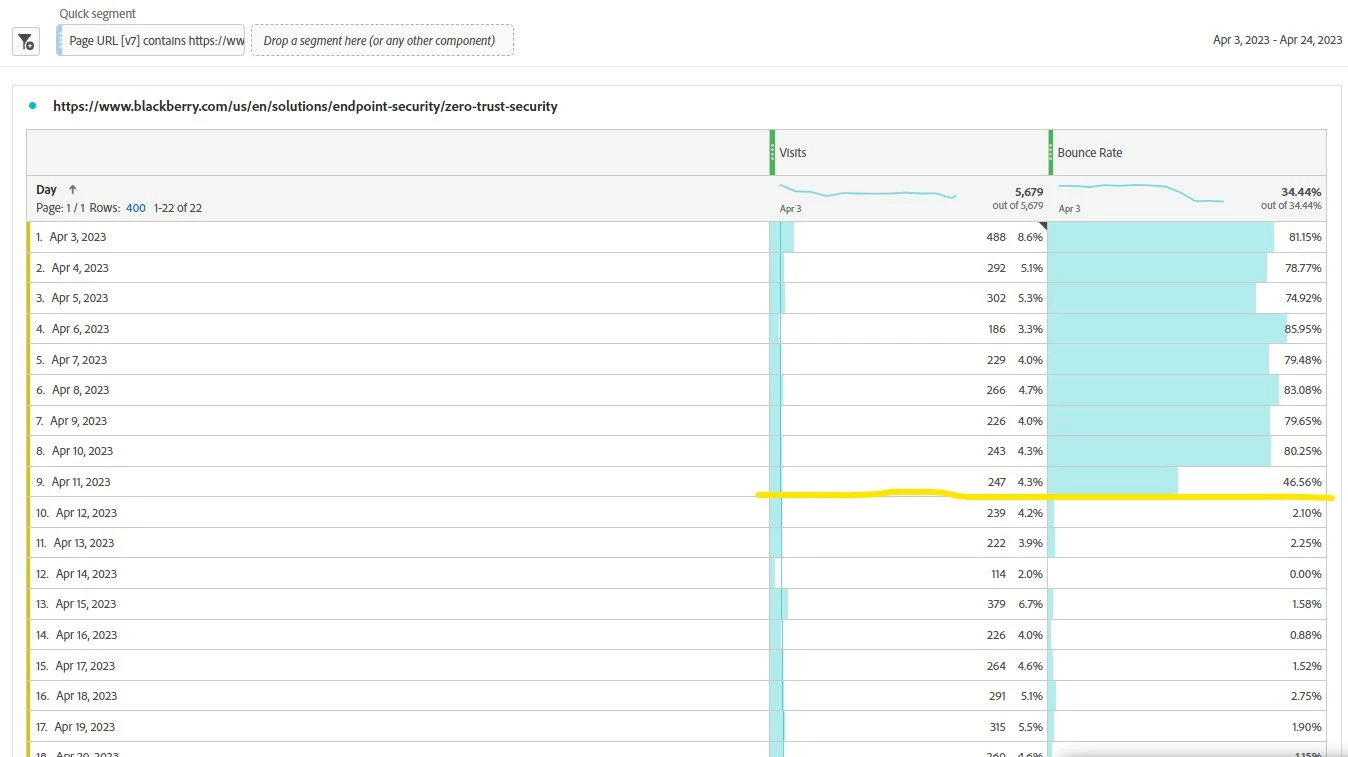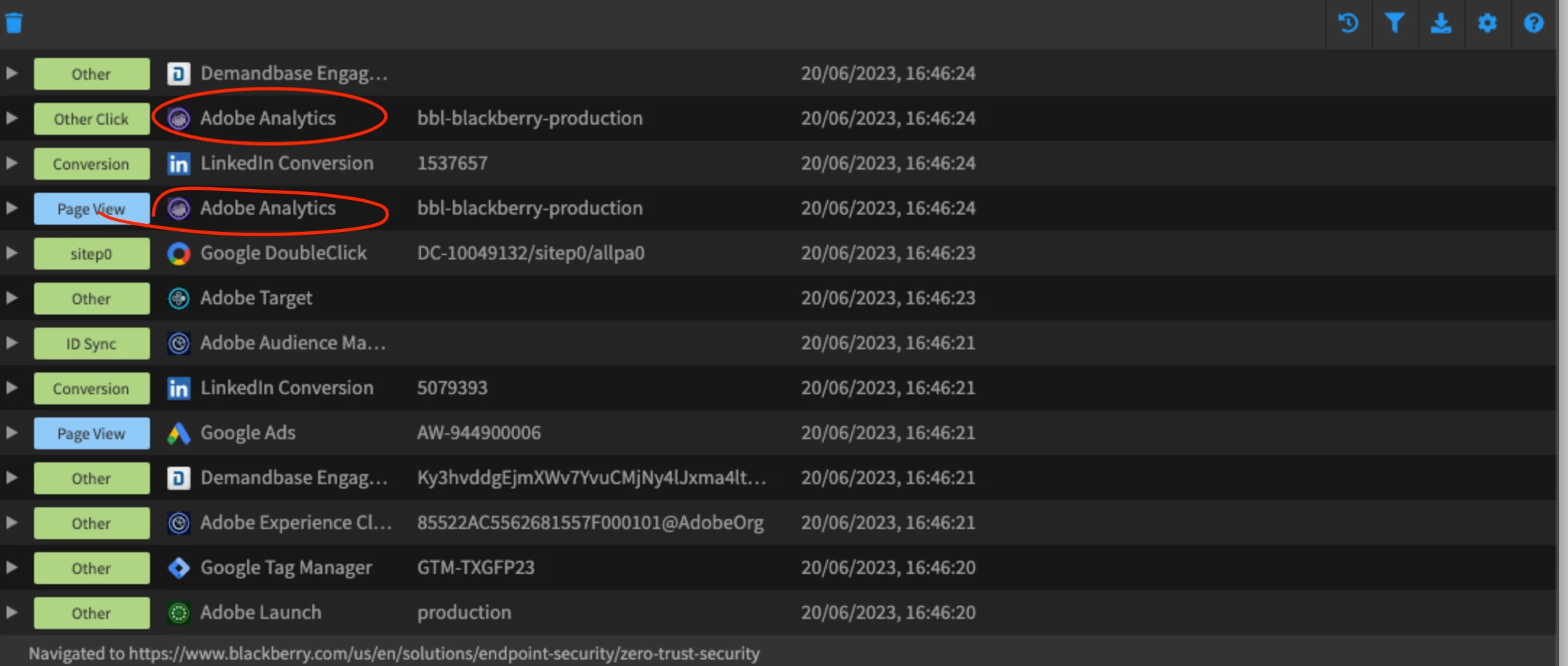A sudden drop in bounce rate
Hi there,
I have noticed an unexplained sudden drop in bounce rate for (see image attached):
https://www.blackberry.com/us/en/solutions/endpoint-security/zero-trust-security
We had bounce rate at about 80% for this page. On April 12, 2023 the bounced rate drop to 2.10% and even hit 0% on April 14, 2023. After April 12 the bounce rate for this page stayed has been about 2% or lower.
There were no updates / changes made to our site around April 12. There is only one tracking script on the page. There are no redirects on this page.
Any thoughts on what is causing this issue?
Thanks
Neil

